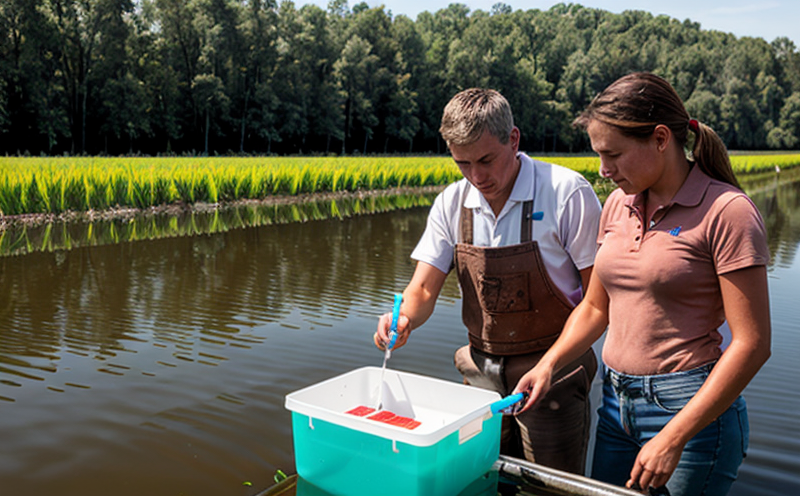Carbonate Content Testing in Irrigation Water
The carbonate content in irrigation water plays a pivotal role in determining its suitability for agricultural applications. Carbonates, particularly bicarbonate (HCO₃⁻), are often present in natural water sources and can have significant effects on soil pH, nutrient availability, and crop growth.
High levels of carbonates can lead to alkaline conditions that may interfere with plant uptake of essential nutrients such as iron, manganese, zinc, and copper. On the other hand, low carbonate content could result in acidic conditions which might be detrimental for certain crops requiring a more neutral pH environment.
In agriculture and forestry, maintaining optimal levels of carbonates is crucial not only for crop health but also for overall soil fertility management. This testing helps farmers understand their water sources better so they can make informed decisions about irrigation practices and possibly apply corrective measures if necessary.
For instance, in regions where limestone or chalky deposits are common, there may be naturally higher concentrations of carbonates in surface waters. Understanding these levels allows growers to adjust their agricultural strategies accordingly. Conversely, areas with low carbonate content might benefit from amendments that could enhance soil properties and improve crop yields.
The significance of this test extends beyond just plant health; it also affects the efficiency of irrigation systems themselves. Water with high carbonate contents can scale equipment over time, reducing its lifespan and increasing maintenance costs. By monitoring carbonates regularly, users can avoid such issues by implementing appropriate treatment methods or selecting suitable crops for specific water types.
Additionally, accurate measurement ensures compliance with local regulations regarding water quality standards set forth by bodies like the Environmental Protection Agency (EPA) in the United States or similar organizations worldwide. These guidelines ensure that agricultural practices do not negatively impact downstream ecosystems or human health.
Why It Matters
Water quality testing, especially for carbonate content, is essential because it impacts various aspects of agriculture and forestry:
- Crop Health: Proper pH levels are critical for optimal growth and development.
- Nutrient Availability: Ensures that plants can access necessary minerals effectively.
- Irrigation Efficiency: Prevents scaling in pipes and equipment, thus extending their life span.
- Regulatory Compliance: Adherence to environmental protection laws ensures sustainable practices.
Scope and Methodology
| Parameter | Description |
|---|---|
| Sample Collection | Preliminary samples are collected from the source of irrigation water. |
| Sieving | The sample is sieved to remove any large particulates which may interfere with testing. |
| Preparation | Pure water is added to the sample until it reaches a specific volume, ensuring accurate readings. |
| Dilution | If necessary, dilutions are made according to standard protocols defined by ISO 6282:1998. |
| Measurement | The carbonate content is measured using pH meters calibrated per ASTM D5747-03(2012). |
Environmental and Sustainability Contributions
- Reduces Waste: Precise measurements help minimize unnecessary applications of fertilizers or other amendments.
- Saves Resources: Efficient use of water reduces overall consumption.
- Promotes Biodiversity: Suitable pH levels support diverse ecosystems within the farm boundaries.





